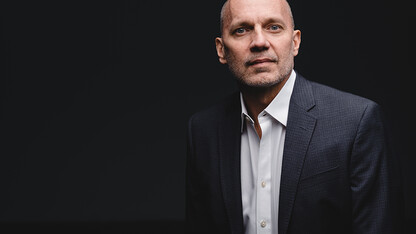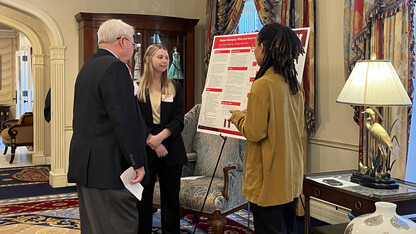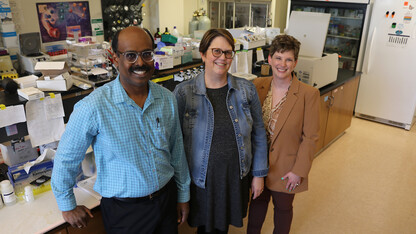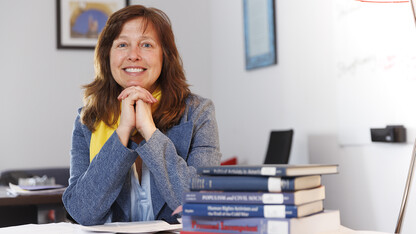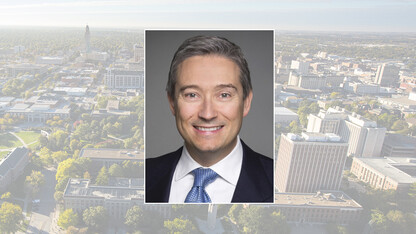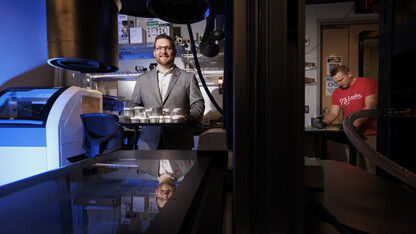· 3 min read
Barkley clinic launches aphasia partners program
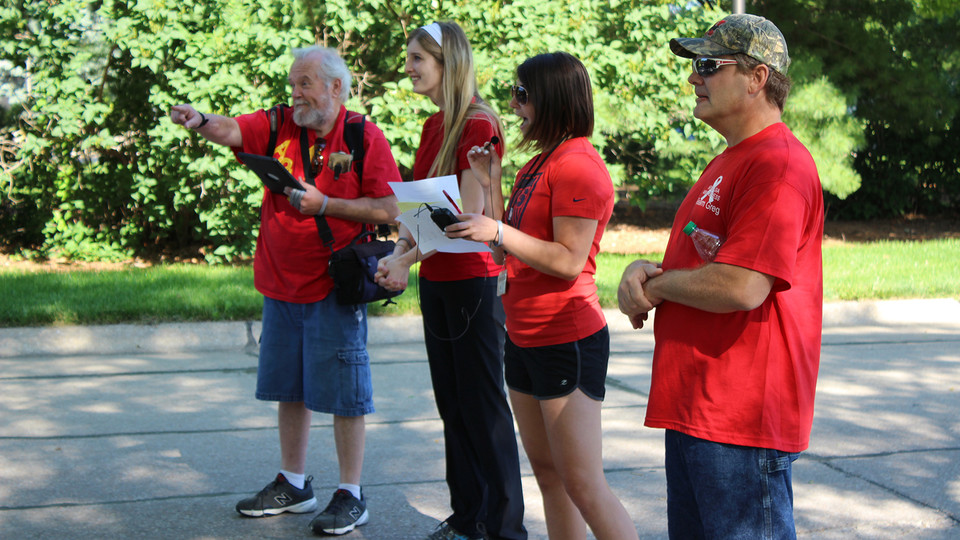
A new program aiming to help people with aphasia remain socially active has launched at the University of Nebraska–Lincoln’s Barkley Speech Language and Hearing Clinic.
The Aphasia Community Partners program pairs a person with aphasia with a volunteer who takes the individual out to engage in community activities.
Aphasia is an acquired communication disorder of understanding and using symbols, most evident in difficulty using or understanding language. It is caused by damage to the brain, most commonly from a stroke. Brain tumors, traumatic brain injuries and progressive neurological disorders may also cause aphasia. The National Aphasia Association estimates that about 2 million Americans are affected by aphasia and, nearly 180,000 individuals in the United States acquire the disorder each year.
Kristy Weissling, associate professor of practice and coordinator of the speech and language services within the Barkley Memorial Center, said the goal of the aphasia program is to get the individuals with the disorder participating in community activities.
“There’s a very high unemployment rate in individuals with aphasia,” Weissling said. “Generally, people become, over time, more and more socially isolated. That’s why this program is so important because it keeps getting them out there, and helps them get reconnected and making friendships. My dream is that we help people stay connected.”
Certified speech-language pathologists from the Barkley Clinic train the volunteers in communication strategies to use with individuals with aphasia. The speech-language pathologists then attend the initial meeting between the volunteer and the person with aphasia and are available to assist throughout the program. Volunteers also receive stipends to help offset the costs of the activities.
“It’s kind of a different approach to aphasia,” Weissling said. “There are centers all over the country, where individuals with aphasia go to the center and are offered programming there. As I thought about that, I didn’t think that was feasible in rural communities, and I’m always thinking about how we transfer what we’re doing here outside of the university setting.”
In the initial phase of the program, participants have been existing Barkley Center clients. Weissling is hopeful that, in time, it will include more people across Lincoln and the surrounding area. Ultimately, the goal is to collect data on the program before expanding it to other communities across Nebraska.
“I believe there are lots of great resources in communities across the state, and that each individual community will have its own solution for how to help people with communication problems. What they need is help realizing that the problem is there and a connection to someone who can help,” she said.
To support the volunteer stipends for the Aphasia Community Partners program, Nebraska speech-language pathology graduate students host an Aphasia Awareness Walk each June. The third annual event is scheduled for 9 a.m. June 17. Learn more and register here.


